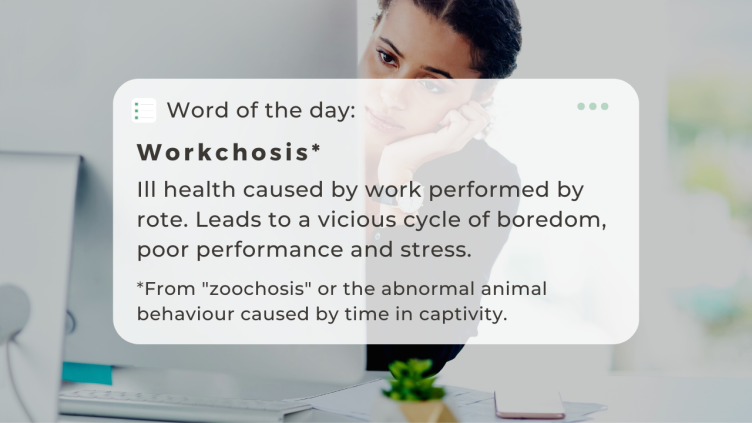
Because we are lazy and energy-conserving creatures, we often stop challenging ourselves and instead log out intellectually when we think we know how to perform a task.
When this happens, you risk engaging too much in what I call activity-focused behavior. This means that you start performing your tasks mostly by habit. You work the same way, repeatedly, and without any deeper focus on how to improve the value of your work for the people dependent on it.
Performing tasks by habit is good from an energy-saving perspective, but it often leads to a vicious cycle which in turn causes what I call “workchosis”. (Zoochosis is defined as “abnormal animal behavior caused by time in captivity.”)
You will gradually become less insightful about how you perform your tasks because when we operate based on habit, we think very little about how we do things. When asked to work faster or produce a better result, you don’t even know where to start. There are more issues:
Gradually decreasing the effort spent performing the work, which leads to worsening performance.
Boredom and procrastination, which are the primary drivers behind backlogs and rework.
Fear of failure and risk aversion, leading to resistance to change and experimentation.
The more longer-term symptoms of workchosis are:
- Incompetence for the job – the requirements of the job are changing but you are not.
- Inability to learn – learning is a skill, if you don’t use it, you’ll lose it.
- Over-sensitivity toward uncertainty – which is a major cause behind anxiety, depression, and burnout.
- Lack of cognitive reserve, which makes the brain age faster and makes it more susceptible to brain damage, e.g., Alzheimer’s.
Not pushing yourself to continuously understand how you can create more value for the people dependent on your work will erode your sense of purpose. It is a basic human need.
We need to know that what we do is considered valuable to others. When that need is not satisfied, we feel anxious, or we cultivate indifference to protect ourselves psychologically.
In my experience, it is activity-focused behavior – and not the work environment – that is the major reason why many professionals dislike their work, feel that they have too much to do and too little time, and even become sick from it.
Through this blog post, I’m sharing some of the critical insights you’ll find in my book “Intrinsic Motivation: Learn to Love Your Work and Succeed as Never Before.”
The original post can be found in my LinkedIn newsletter – Intrinsic Insights. You can follow me on LinkedIn and subscribe to Intrinic Insights here.
